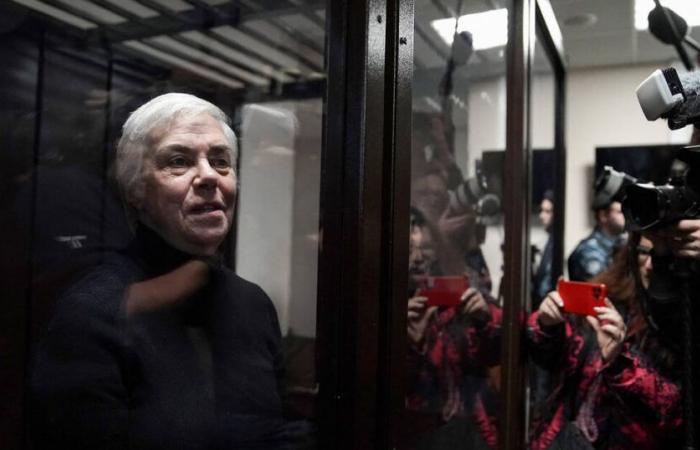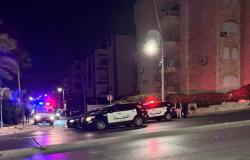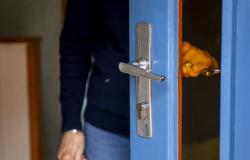
Five and a half years behind bars for words said to have been said in private. Russian justice on Tuesday, November 12, sentenced Nadejda Bouïanova, a pediatrician from Moscow, to prison, accused by the mother of one of her patients of having criticized the Russian assault in Ukraine during a consultation. “No evidence has been presented!” lambasted one of his lawyers, Oscar Tcherdjiev, in front of journalists, judging the sentence “severe and illegal”. Especially since in this case, it’s word against word: “I do not admit my guilt, I am innocent, the 68-year-old doctor was moved, in tears, before the start of a previous hearing. None of this is true.”
“Shame on you!” supporters of the pediatrician shouted as judge Olga Fedina read the verdict. A few moments earlier, Nadezhda Buïanova had denounced a procedure “absurd” against him. The prosecution had requested six years in prison, while the defense had requested the acquittal of Dr Bouïanova, who continued to proclaim her innocence to the court.
The accuser left “nervous and unhappy” from a consultation
This case illustrates the ruthless repression targeting critical voices, real or supposed, of the large-scale offensive by the Russian army against Ukraine ordered in February 2022 by President Vladimir Putin. Arrests for espionage, treason, sabotage, extremism or for simple criticism of the army are increasing, with the result of very heavy prison sentences for the accused, often victims of denunciations. The day before Nadezhda Buïanova's conviction, a Russian court rejected the appeal of Ksenia Karelina, a Russian-American citizen sentenced to twelve years in prison for “treason” for donating 50 euros to an organization supporting Ukraine.
For Nadejda Bouïanova, the ordeal began on January 31 when the companion of a soldier missing at the front in Ukraine, Anastassia Akinchina, 34, denounced her. This mother of a seven-year-old boy treated by the pediatrician accused her of telling her during a private conversation that her husband disappeared in Ukraine “was a legitimate target” for the Ukrainian armed forces and that “Russia was an aggressor country and attacked Ukrainian civilians.” A version refuted by Nadejda Bouïanova who described Anastassia Akinchina as “a person with an unstable character”, sortie “nervous and unhappy” of a consultation to treat a stye in his child.
Placed in detention for “spreading false information”
Following these accusations, the pediatrician was immediately fired and had only ten minutes, she says, to pack up her things and leave the hospital in which she had worked for four years. But her nightmare was far from over: she was subsequently charged in February and detained in April for “spreading false information” on the Russian army which would have been motivated by “ethnic hatred”.
Nadezhda Buïanova has lived in Russia for thirty years but was born in Lviv, a large city in western Ukraine, considered in Russia to be the bastion of Ukrainian nationalism. “What hatred could I feel? the pediatrician defended herself last week in court, before bursting into tears and noting the lack of evidence against her. I am linked to three Slavic peoples: Russia, Belarus, Ukraine.” Nadezhda Buïanova's colleagues launched an online petition for support. His dismissal was canceled in July by a Moscow court, without this having any impact on the criminal proceedings.





